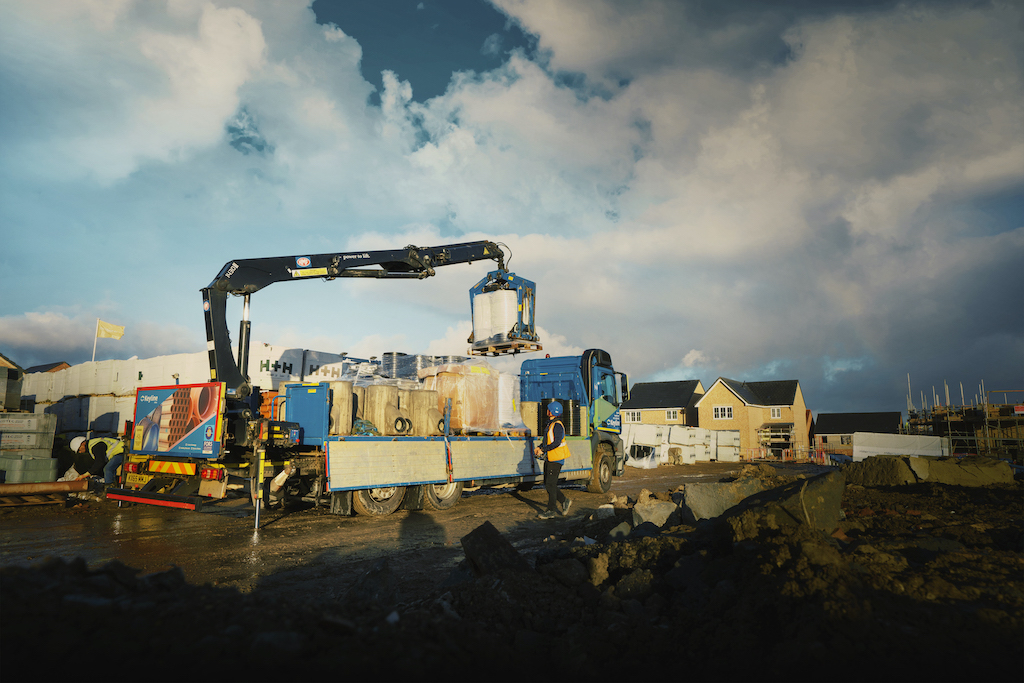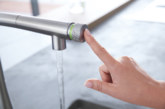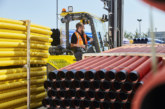Ensuring a site is managed efficiently and effectively is crucial for health and safety on housing projects. Here, Richard Turner, Regional Operations Manager at Keyline Civils Specialist, looks at the key areas to consider and how choosing the right merchant partner can help minimise the risks.
A robust approach to health and safety is crucial for any site, but this becomes more complex for large housing sites or those where space is at a premium. It is important that everyone involved in the project is committed to maintaining the highest standards of safety as poor practice by a single person or organisation can impact the safety of the site.
In particular it is important to consider how materials will be delivered and select suppliers that have taken steps to make their approach and processes as safe as possible. The movement of vehicles and unloading of materials can present hazards if not carried out correctly. This includes workers injured by moving vehicles or being struck by moving or falling objects, as well as falls from vehicles during unloading.
Ideally the layout of the site will keep vehicle and pedestrian traffic as separate as possible and unloading will take place in a location that minimises the risk. Where space on site allows, this should be a designated area away from other site operations. However, the risk can be minimised further if the vehicle’s driver is able to see any people or hazards that may be present. Merchants that are committed to health and safety excellence will have invested in vehicles designed to improve visibility and include features such as blind spot cameras and warning systems.
In addition, the Fleet Operators Recognition Scheme (FORS) accreditation demonstrates that the business has achieved exemplary levels of safety, efficiency and environmental awareness in vehicle fleet operations. At Keyline we are proud to have held Gold status, the highest of the three levels, for a number of years.
Furthermore, knowing when deliveries will be made also has a role in ensuring safety. Where suppliers can provide accurate timings and updates on the arrival of materials it allows those on site to ensure that vehicle routes are clear, and that the unloading area is ready. This includes having the correct materials handling equipment in place and ensuring the area is clear of hazards and additional personnel. For example, at Keyline, we can provide a customer with a two hour delivery window and then a further update when the vehicle is 20 minutes away from site.
Additionally, unloading should be carried out in a way that minimises the need for anyone to climb onto the vehicle bed with the ultimate aim being to eliminate this entirely. This minimises the risk of falls from the vehicle or accidents with the movement of the loads. This may be achieved by suppliers pre-slinging the loads and using remote controlled vehicle mounted cranes to allow the driver to remain on the ground at all times. Besides the safety benefits, the streamlined delivery processes will also help make the site more efficient.
Finally, when selecting a merchant partner it is important to look for independent certifications that demonstrate the business is making a significant and ongoing commitment to meeting the highest standards of health and safety. There are a range of industry certifications including CHAS, and awards from organisations such as the Royal Society for the Prevention of Accidents (ROSPA) that can help identify organisations that have proved their health and safety excellence.
All parties involved in a project must take responsibility for ensuring safety and must share a commitment to minimising risk wherever possible. In choosing partner organisations it is important to carefully assess their approach, especially for those such as merchants that will make frequent deliveries to site throughout the project. Factors ranging from the design of vehicles and unloading procedures to delivery management processes and industry certifications should be considered.










